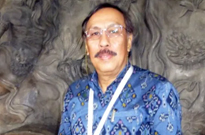
小肝癌患者的检出比例逐渐升高,其治疗方法多种多样。肝移植是目前治疗肝癌最有效的方法,如何恰当的选择接受肝移植治疗的患者?第29届亚太肝病学会年会(APASL2020)就此话题特别邀请印度尼西亚大学、印度尼西亚Cipto Mangunkusumo综合医院Toar J. M Lalisang教授进行题为“Liver Transplantation for Small HCC: Where Do We Stand?”的State of The Art Lecture主题报告。会议期间,Lalisang教授也就相关问题回答了《国际肝病》记者采访的提问,详见下文。
合理选择小肝癌患者进行肝脏移植
小肝癌的发病率正在增加,在治疗中我们不仅需要关注患者肝癌的数量、大小及肝功能与否,还必须考虑肿瘤的生物学特征这一更为重要的因素。因此,必须评估肿瘤的分化和标志物情况,例如IFP或良好的分化等。
当肝癌很小且患者肝脏功能为Child-Pugh A时,首先将选择肝脏切除术而不是肝脏移植。通常来说,在可以切除的情况下,只要肝脏状况良好且剩余肝脏仍足够进行更好的切除将选择肝脏切除。但是如果残肝太小,Child-Pugh评级超过B或C,需更多的考虑肝脏状况。
同样对于活体捐献者,必须公平对待捐助者。当患者的肝癌细胞侵袭性非常高时,由于面临很高的复发率,即使捐献者可以给予肝脏,也不能证明其合理性。特别是在印度尼西亚,目前的活体捐赠者数量有限,尸体捐赠还不可以。当找寻到活体捐赠者时,可以选择捐赠者,给捐赠者以时间去准备。
原文呈现
<Hepatology Digest>: The incidence of small liver cancer is increasing and the treatments are various. How do you select patients for cancer transplantation?
Dr. Lalisang: As mentioned like in my doc, my slide, first now we must include the tumor behavior. We are not anymore directly only thinking about the number and the size. But now, the criteria must be for to decide liver function or not. It’s more important the behavior of the tumor. So, you must put like differentiation and the markers of the tumor. Like IFP, good differentiation. So, if it is small and the Child-Pugh liver condition is an A, so first I will choose liver resection, not the liver transplant. Especially why I say it like this is because in Indonesia, the donor is—not enough donors I know—but the cadaveric donor is not working right now. But if I find a living donor, what do I call, it is not ready. So, if and when we have already, we can choose the donor, but you know, to prepare a donor it just takes time. So, usually, this does not justify it in a small one when resection can be done, better resection can be done. As long as the liver condition is good and the remnant liver will be still enough. But then if in small tumor, I think if the Child-Pugh is more than B or C. So that is because small we are not talking about the remnant liver because this will still be enough. But we are thinking more about the liver condition. But the important thing is also because we are using a living donor, it is a little bit different. Because we must be fair for the donor. If we are facing a very high recurrence, a very aggressive tumor—it is aggressive like a fairly high IFP—I think it does not also justify it even though the donor can give the liver. I think it is not what we call fair because very high recurrence will be happening.
控制危险因素,尽量避免肝移植术后复发
肝癌患者肝移植术后复发率很高且机制还未阐明。但是,当患者伴有乙肝和丙肝且无法得到控制时,就会影响肝癌的复发。其次是肿瘤的生物学行为,对于分化很差的肝癌,由于有可能已经侵袭了血管系统,可能导致非常高的复发率。此外,外科医生的手术技术也很重要,冷缺血和热缺血的时间,出血量的多少都对术后的复发有一定影响。因此,必须具有良好的手术技术,还必须遵循癌症管理(例如肝癌)的有关规定,如避免触摸,避免大力操作等。还要预防和控制潜在疾病如乙肝或丙肝。
原文呈现
<Hepatolgoy Digest>: What are the main risk factors for recurrence after liver transplantation? Dr. Lalisang: Yeah, they are still in the study. But before we already know if you have an underlying disease like B or C where it is not controllable before, they—hep B and C—impact to make the HCC, I think we are faced with a very high recurrency. The second is the behavior. We don’t know if it is a very poorly differentiated HCC or a very large one. And there are, what do you call it, in the margin they’re already infection to the vascular system. I think it is also very—I suspect it to be—a very high recurrency. Operative technique is also very important, how long is the ischemic cold, and warm ischemic, it is also in how much bleeding you get. So technically, I think you are asking the last question like this. First, you must have a very good surgery technique and also the law for to how to manage cancer—liver cancer tumor—must be followed, like not touched anymore, no manipulation too hard. And also, the condition. And while I think the prevention is to control the underlying disease: hep B or the hep C. Lalisang博士与我国的肝脏外科专家有着深厚的友谊,在采访中,他希望我国的医务工作者能尽快战胜病毒,并表达了其美好的祝愿。
“I learn liver transplant first I go to Hangzhou, and then another connection with Professor Chen XiaoPing. And there’s many friends also in Taiwan, also in Hong Kong. Hopefully they will overcome the corona virus as soon as possible.”